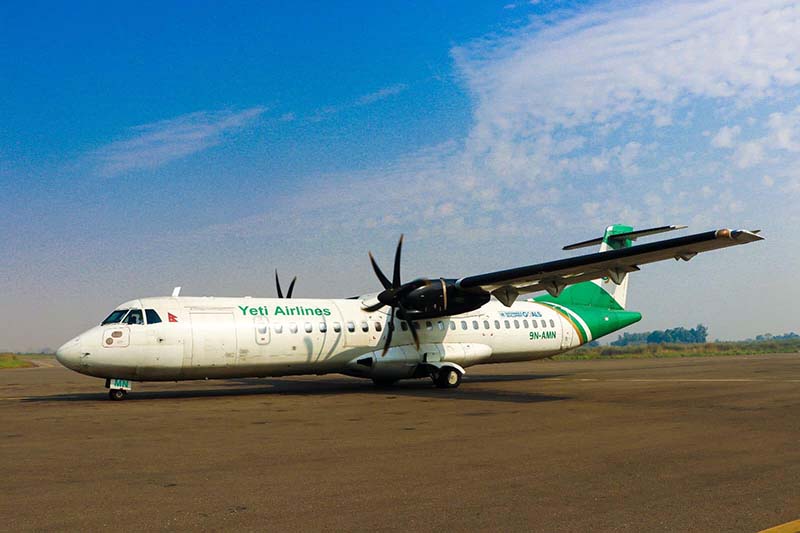

Along with the prohibitory order being imposed across the country to curb the spread of the second wave of the coronavirus, the government had also restricted the operation of domestic flights.
However, on July 9, the government decided to further ease the restrictions placed on domestic flight operations and the Civil Aviation Authority of Nepal (CAAN) allowed domestic airline companies to schedule regular flights based on the demand from passengers. The quota system that had been in place for domestic flights whereby only 50 per cent of regular flights was allowed was rescinded as many roads and highways have been obstructed across the country due to the floods and landslides.
But what is the situation like for the domestic airlines right now? And is it safe?
Sakshyam Dhungana, Spokesperson of Shree Airlines, says, “The number of passengers has increased considerably which could be due to the roads and highways being obstructed because of the natural disasters. Even with this rise in number of passengers we have been running smoothly and there has been no problem till date.”
Despite CAAN giving the go-ahead for regular flights, the domestic airline companies still have to be careful about following the COVID-19 safety protocols.
Meanwhile, Sudrashan Bartaula, Spokesperson for Yeti Airlines, says, “We are allowed to operate regular flights as per passenger demand but our biggest concern is the safety protocols and how to adhere to them.” He adds that the domestic terminal at the Tribhuvan International Airport is small and it is difficult to maintain social distance.
Bartaula informs that to stay on the safe side Yeti Airlines is operating only 75 per cent of its regular flights. “We need to make sure that passengers flying with us are safe,” he says, adding that Yeti Airlines and its subsidiary Tara Air are conducting only 20 flights a day at present.
Due to the inclement weather, there are chances of flights being delayed or rescheduled which may lead to big crowds at the airport. And since road transportation has been halted at many places of the country due to landslides and floods, the number of air passengers has increased. So would it be a good idea to operate all regular flights?
Bartaula says, “Instead of operating all regular flights right now and facing the risk of having to halt flights again it would be better to self-regulate the number of flights and gradually open up.” He adds the occupancy rate at present is at around 95 per cent and it is good for business but all airlines must be careful of maintaining health safety measures so that there is no transmission of the virus through the flights.
“We need to have a long-term plan to operate flights so that we do not have to halt operations again after a couple of weeks,” he states.
Similarly, Dhungana also explains how Shree Airlines is trying to maintain safety protocols. “While we cannot provide PPE to all the passengers we do provide face masks and hand sanitiser at every station to keep our passengers and staff safe,” he adds.
Meanwhile, Buddha Air has been operating 31 flights after the easing of the prohibitory order.
“We have been operating regular flights but not all of them,” says Spokesperson of Buddha Air Dipendra Karna. He adds that when limited number of flights are operated then the cost of operation rises as a result of which the airfare for passengers too increase.
He mentions that Buddha Air has been following all COVID-19 safety guidelines. “The pandemic has caused a huge setback to the domestic aviation sector and the major issue right now is the maintenance expenses of staff as flights had been halted due to previous lockdowns.”